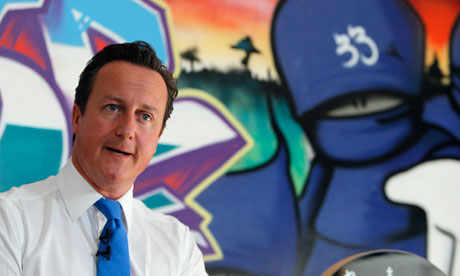
Seeking opportunity in a moment of crisis, David Cameron this week spoke of Britain’s “slow-motion moral collapse”. The prime minister sought to identify “deeper problems” and came up with a sociological canard: the culture of poverty.
This analysis is one that regards the chaotic lives of poor people as cause, not symptom, of the collapse of their communities. For the prime minister, these families and their children simply chose to be feckless, indolent or on the wrong side of police lines.
Such talk will do much to harden public attitudes – helpful to a prime minister who wants to push draconian social policy through the Lords in the autumn. The rhetoric will profit the contentious welfare reforms, a policy built on the idea that poor people are “culturally” unique and dependent on welfare by their own design.
Although a seductive line of reasoning, there is little evidence to support a thesis that poor people’s behaviours and attitudes lie behind their plight. When proof is necessary to support this line of thinking ministers reach for beguiling figures. But in the welfare debate these numbers increasingly appear to be a mixture of lies and statistics.
Only last week, the Department for Work and Pensions (DWP) admitted that its claim that there had been a 30% rise in people on disability living allowance over eight years was in fact “distorted”. Some in the media had confidently reported that people were either junkies, alcoholics or faking their disability to get the welfare payment – hence its supposed escalating cost to the taxpayer. In fact, the rise is closer to 16%.
Blogger Mason Dixon points out that if this information had been released when it was signed off, in May, it would have been released while MPs were debating the welfare reform bill. But having concealed the real figure, the government is pressing ahead with cutting a billion pounds from the benefit.
Another supposed trait of poor people is that they are workshy. To substantiate such prejudice, ministers point to the number of people who have been shifted (after a controversial medical test) from incapacity benefit to employment and support allowance.
When the department’s statistics came out last month, the media reported with glee that only 7% of applicants had been judged unfit for work. The Daily Mail dubbed them “the shirking classes”. Justified perhaps, except it was not true. Sir Michael Scholar, chair of the UK Statistics Authority, said in a letter to ministers earlier this month that the DWP had been producing data that was “not as clear as it should be”.
Then there is the frequent claim of a Shameless generation – swaths of the country where no one works because “scroungers” are paid not to by the government. Declan Gaffney, a former adviser to the DWP under Labour, has sifted through the census data to show that last year only 47 “super-output areas” – each corresponding to about 1,500 people in England – had more than half the population in receipt of out-of-work benefits. These represent a tiny 0.63% of all welfare claims.
In truth, the welfare bill, as a percentage of GDP, is roughly the same as when Labour took power in 1997 – despite a recession, inevitable higher unemployment and the spluttering economy. But to convince voters that Britain is broken, the prime minister is pushing social policy based on ideology rather than evidence. It is a belief system that will do little to help the people who need it.
• Randeep Ramesh is the Guardian’s social affairs editor.
![]()
guardian.co.uk © Guardian News & Media Limited 2010
Published via the Guardian News Feed plugin for WordPress.

Sorry, but I think most of the general public are bloody thick and believe anything they are told by the media.
It’s broken now he’s had his hands on it. 3 year old spoilt brat with a new toy.
I truly hope people, aside from those already of this mindset, see all of this propaganda for what it really is. God i feel f””king hopeless!!
If that’s true we either get media savvy or concede defeat – sorry but I have to keep on beleiving or I’d give in
I don’t believe in anything, just reality. Ok, so I knicked that from ‘God’ by John Lennon. Same album with ‘Working class hero’. As soon as yer born, they make ya feel small, by giving you no time instead of it all.
Marx: “Men make their own history, but they do not make it as they please; they do not make it under self-selected circumstances, but under circumstances existing already, given and transmitted from the past. The tradition of all dead generations weights like a nightmare on the brains of the living.”
“”Although a seductive line of reasoning, there is little evidence to support a thesis that poor people’s behaviours and attitudes lie behind their plight. When proof is necessary to support this line of thinking ministers reach for beguiling figures. But in the welfare debate these numbers increasingly appear to be a mixture of lies and statistics.
Only last week, the Department for Work and Pensions (DWP) admitted that its claim that there had been a 30% rise in people on disability living allowance over eight years was in fact “distorted”. Some in the media had confidently reported that people were either junkies, alcoholics or faking their disability to get the welfare payment – hence its supposed escalating cost to the taxpayer. In fact, the rise is closer to 16%.
Blogger Mason Dixon points out that if this information had been released when it was signed off, in May, it would have been released while MPs were debating the welfare reform bill. But having concealed the real figure, the government is pressing ahead with cutting a billion pounds from the benefit.”